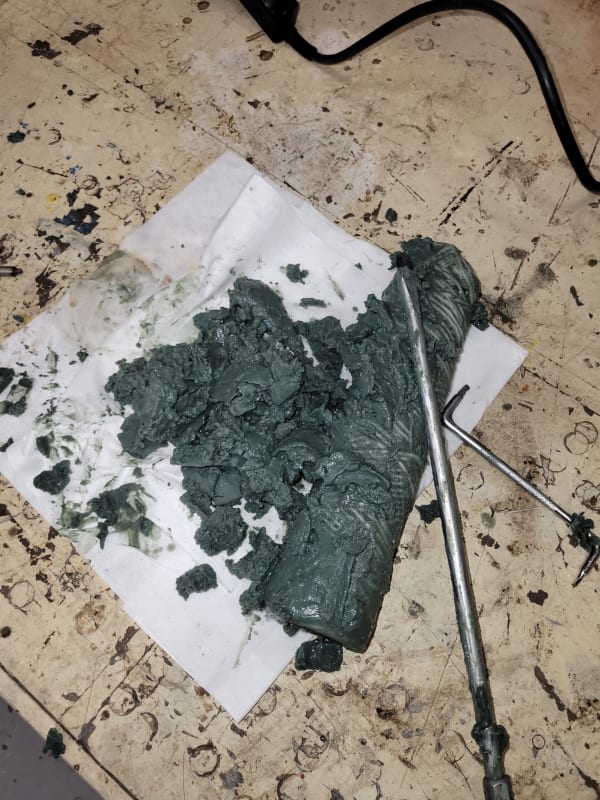MacMcMacmac
Aerospace
- Sep 8, 2010
- 56
Hello again. We just shut down for our annual maintenance an I was greeted with the following mess. Glycol was replaced in 2014 with GE Corrshield 4404. Unit is a Munters CargoCaire dehydration unit utilizing a Carrier chiller to remove heat from the system. Just wondering if anyone has dealt.with this before. I would have though this would ha e lasted a lot longer than this. The green color immediately raises concerns of copper corrosion. GE Power and Water was sold off and sold off again so trying to reach any engineering support is hopeless. Very concerned with coil plugging. Surge tank also has a thick layer at the bottom, but much thinner and diluted. The glycol was gin clear when we put it in.


